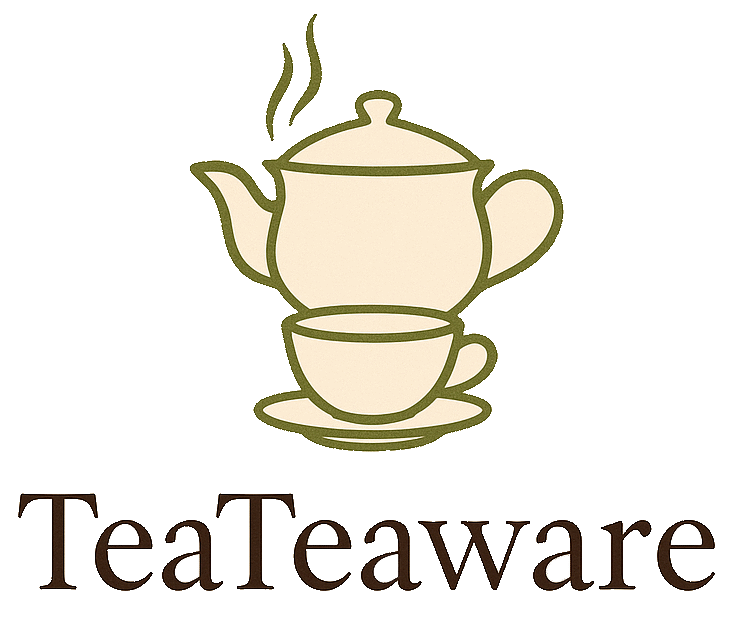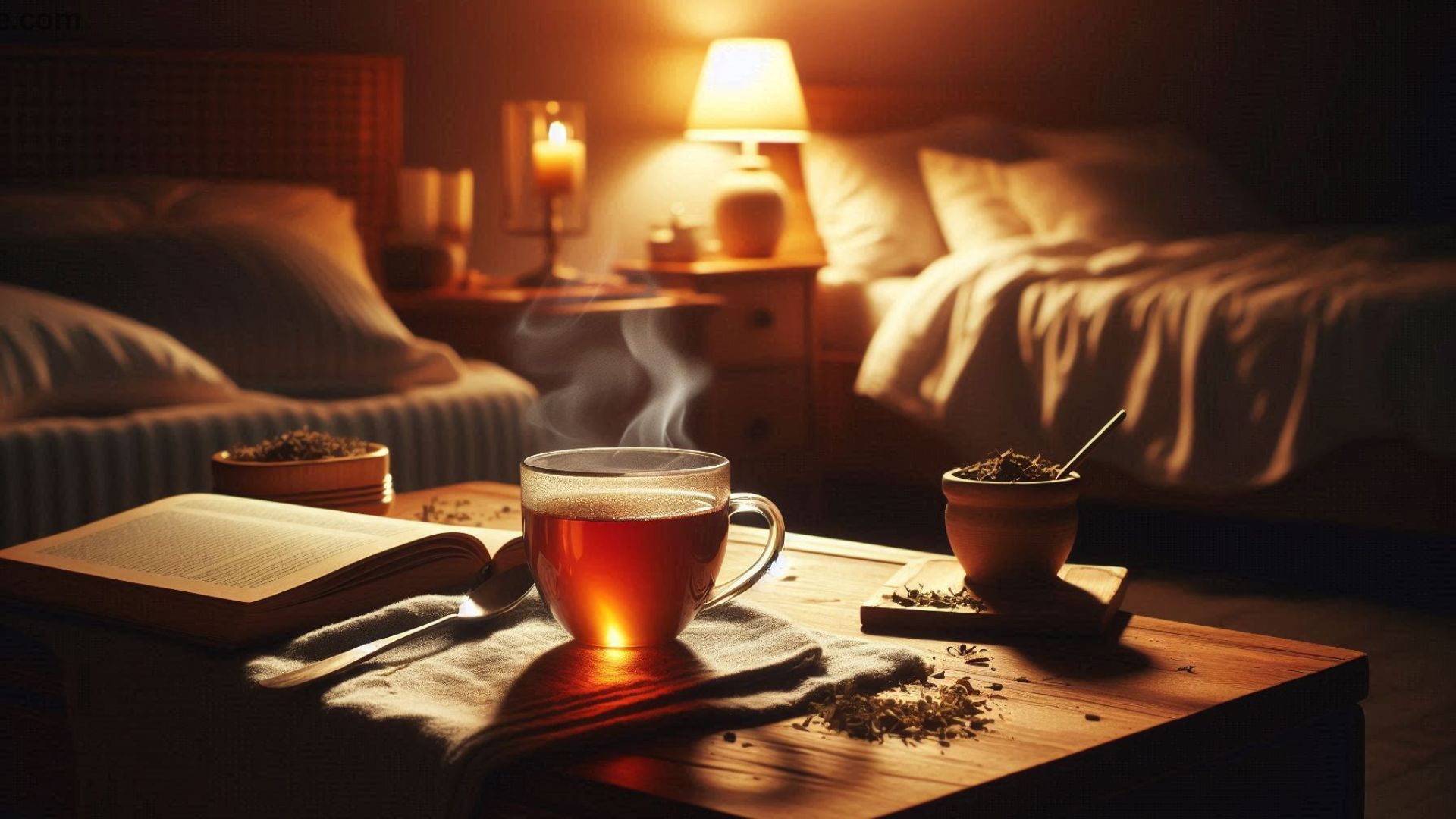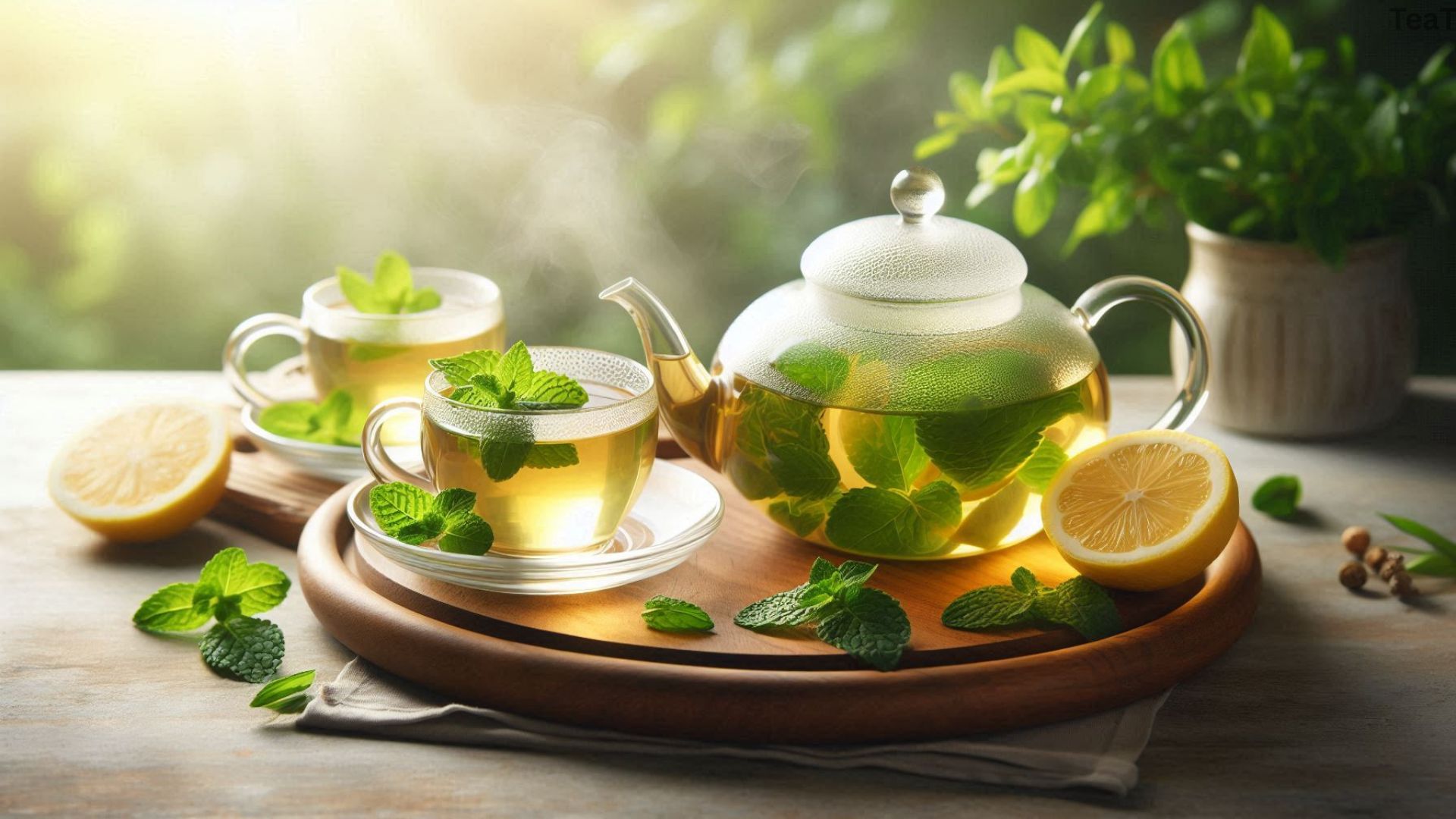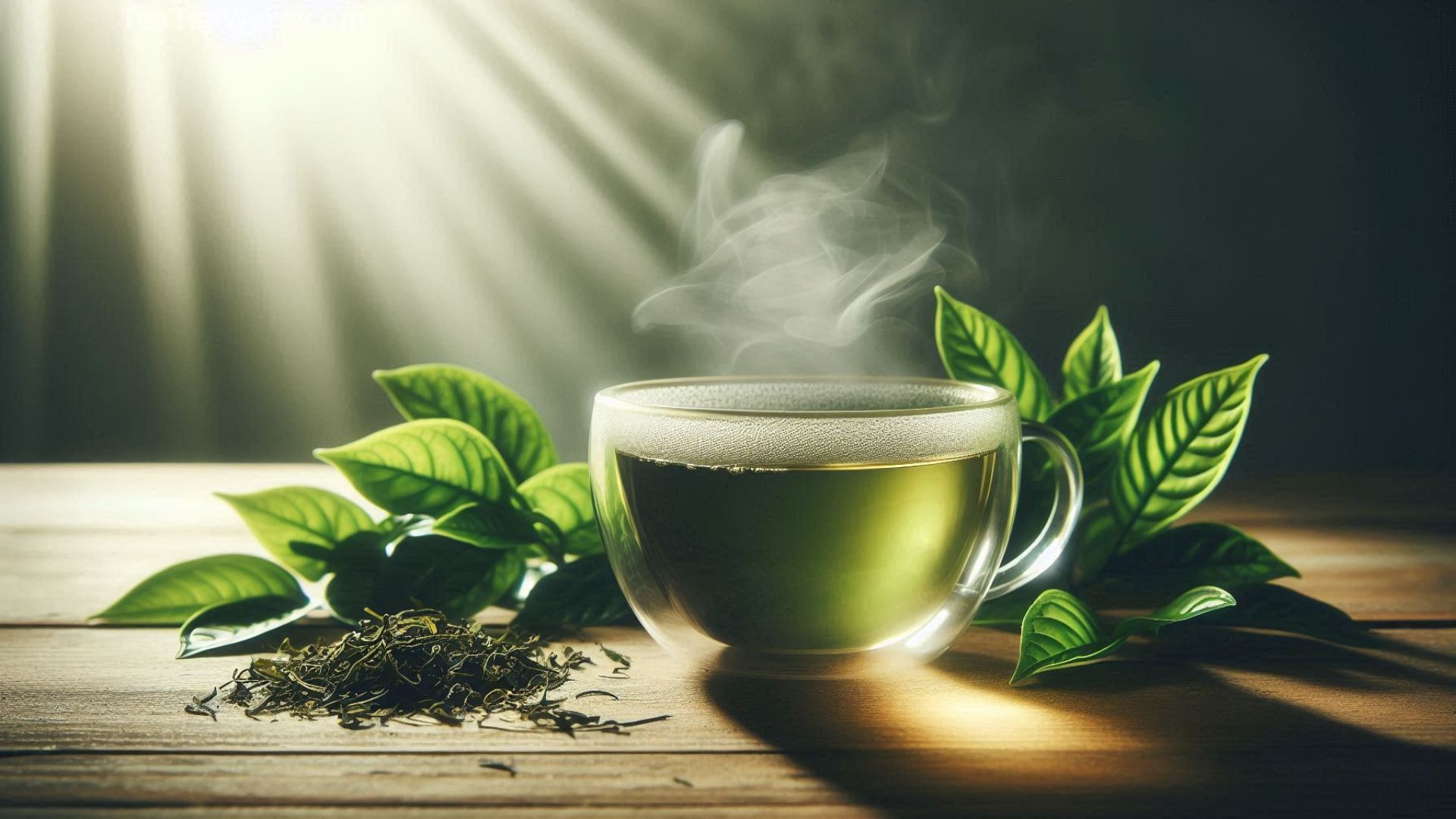There’s something uniquely comforting about holding a warm cup of tea in your hands as the day winds down. For many, herbal tea is more than just a drink—it’s a ritual that signals relaxation and prepares the body for sleep. Beyond the soothing warmth, certain herbal teas are known for their calming effects, helping to reduce stress, ease anxiety, and even improve sleep quality.
In this guide, we’ll explore six of the most effective bedtime teas, how they work, and tips for making the most of your nightly cup.
What Is Bedtime Tea?
Bedtime teas are specially formulated herbal blends designed to help you relax and prepare for sleep. Unlike caffeinated teas, they are usually free from stimulants and often include herbs such as chamomile, lavender, passionflower, and valerian root—plants known for their calming properties.
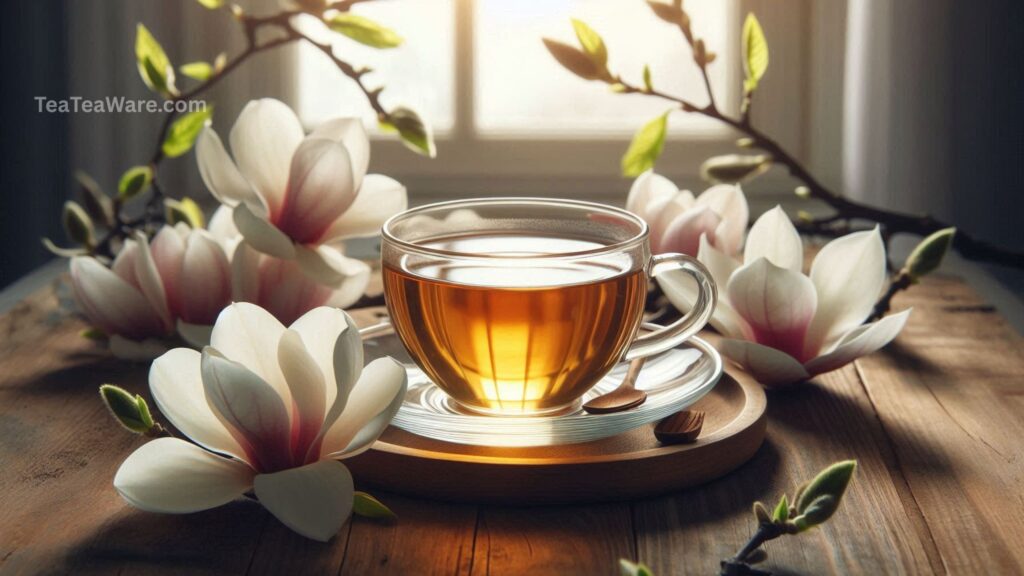
Drinking a warm cup of herbal tea before bed can:
- Signal your brain that it’s time to wind down
- Provide gentle hydration
- Create a soothing bedtime routine
- Enhance overall relaxation
While herbal tea is not a replacement for proper sleep hygiene or treatment for serious insomnia, it can be a natural and comforting addition to your nightly ritual.
1. Magnolia Tea
Magnolia tea is made from the bark, buds, and stems of the magnolia plant and has been used in traditional medicine for centuries to promote calmness and sleep.
Benefits:
- Contains honokiol and magnolol, compounds believed to have sedative effects
- May reduce anxiety and improve sleep quality
- Some studies suggest benefits for postpartum mothers, including less depression and better rest
While much of the research is preliminary and often based on animal studies, magnolia tea remains a promising natural sleep aid.
Tip: Steep magnolia bark in hot water for 5–10 minutes and enjoy it 30–60 minutes before bed.
2. Low-Caffeine Green Tea
Green tea is widely celebrated for its antioxidants and health benefits, but certain low-caffeine or decaf varieties can also support relaxation.
Benefits:
- Contains EGCG, a compound linked to stress reduction
- Can improve sleep quality when consumed in moderation
- Provides a gentle, earthy flavor that complements a bedtime routine
Tip: Opt for decaffeinated green tea if drinking close to bedtime to avoid interference with sleep.
Our Pick: Traditional Medicinals Organic Nighty Night Tea – a blend of chamomile, passionflower, and valerian root, trusted for its calming properties.
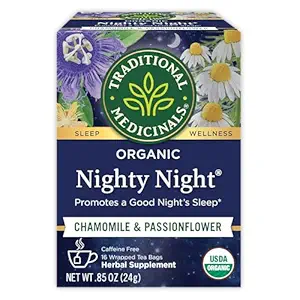
Traditional Medicinals Organic Nighty Night Tea
One of the most trusted sleep teas, this blend contains organic passionflower, chamomile, and valerian root — all known for their calming properties.
Also Read: Top 3 Tea Infusers for Loose Leaf Tea in 2025
3. Chamomile Tea
Chamomile tea is one of the most popular bedtime teas globally, recognized for its delicate floral taste and soothing effects.
Benefits:
- May improve sleep quality, especially in postpartum women
- Has mild sedative properties that can ease anxiety
- Safe for most people as part of a nightly routine
Tip: Steep chamomile flowers for 5–7 minutes, cover your cup to preserve essential oils, and sip slowly to enhance relaxation.
Fun Fact: Chamomile tea has been used as a sleep remedy for over 2,000 years, from ancient Egypt to modern Europe.
4. Lavender Tea
Lavender tea is made by steeping dried lavender buds in hot water, producing a fragrant and calming drink.
Benefits:
- Promotes relaxation and reduces fatigue
- May improve sleep in older adults and postpartum women
- Offers a calming aroma that enhances bedtime rituals
Tip: Pair lavender tea with deep breathing or gentle stretches to maximize its sleep-promoting effects.
Our Pick: VAHDAM Premium Bedtime Tea Collection – includes lavender, chamomile, and ashwagandha for a holistic approach to sleep.
5. Valerian Root Tea
Valerian root has been used for centuries as a natural sedative, often consumed in tea or supplement form.
Benefits:
- Believed to increase GABA levels in the brain, which reduces anxiety and promotes calmness
- May improve sleep latency and quality for some individuals
- Especially helpful for those with mild sleep disturbances
Tip: Steep valerian root for 5–10 minutes and drink 30–60 minutes before bed. Its earthy taste may take some getting used to.
Caution: Valerian can interact with certain medications; consult your doctor if unsure.
6. Passionflower Tea
Passionflower (Passiflora) is another herb long used for its calming effects. Its leaves and stems can be brewed into a mild, earthy tea.
Benefits:
- Acts as a natural sedative and reduces anxiety
- Some studies report improved sleep quality after just one week of regular consumption
- Can be blended with other calming herbs for enhanced effects
Tip: Enjoy passionflower tea in the evening as part of a consistent bedtime routine.
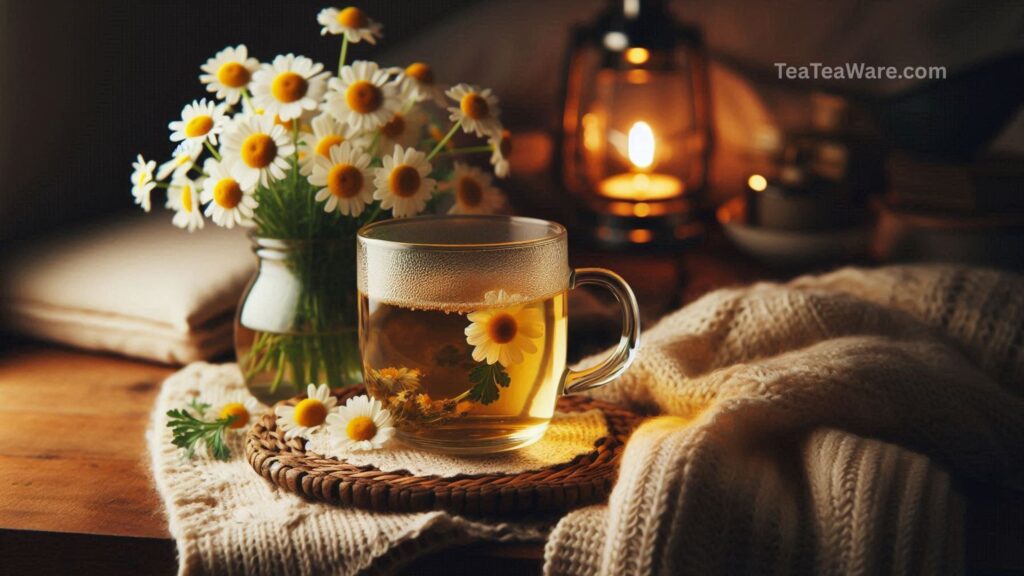
Some research shows that chamomile may improve sleep quality—especially in people who’ve recently given birth. While it might not cure insomnia, it’s a safe and calming option that many people enjoy as part of their nighttime routine.
More studies are needed, but chamomile remains a favorite bedtime tea.
4. Lavender Tea
Lavender tea is made by steeping lavender buds in hot water, creating a fragrant, purple drink that’s as pretty as it is soothing.
Studies have found that lavender tea may help reduce fatigue and promote better sleep—especially in women after childbirth and older adults with anxiety or depression.
Lavender essential oil is also known for its calming benefits, though we’re not yet sure if tea offers the same effects. Still, it’s a lovely choice for winding down.

VAHDAM
A premium collection of loose-leaf bedtime teas, including calming herbs like lavender, chamomile, and ashwagandha.
Also Read: Why Moroccan Tea Is Always Served with a Metal Teapot?
5. Valerian Root Tea
Valerian is a flowering plant, and its roots are often used to make tea or supplements that help with sleep.
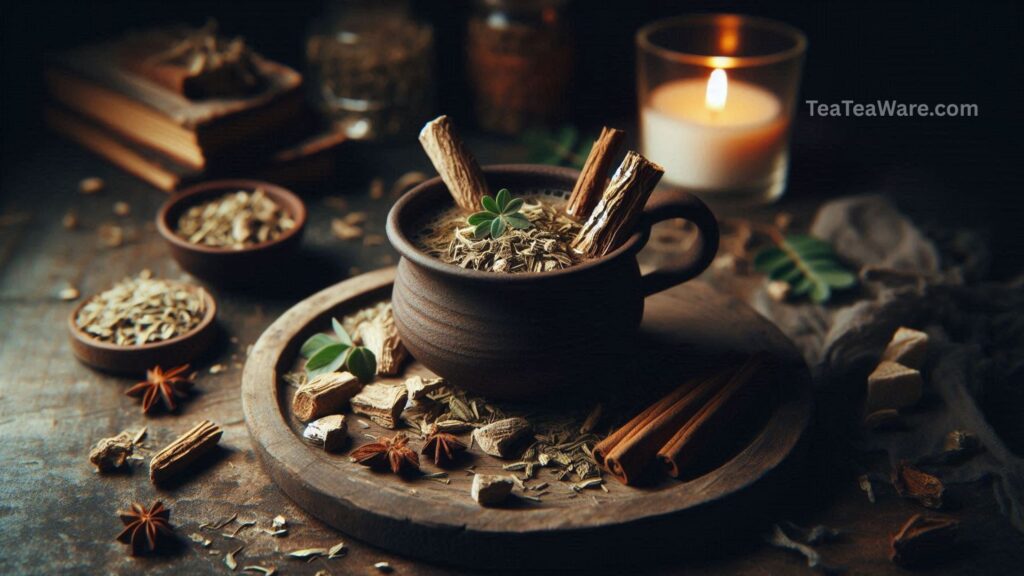
Valerian root is believed to increase levels of GABA, a calming chemical in the brain that helps reduce anxiety. While some studies suggest it can improve sleep, most research has been done on valerian supplements, not the tea itself.
Still, many people find valerian tea helpful. Just know that more research is needed.
6. Passionflower Tea
Passionflower—also known as Passiflora—is another herb long used for its relaxing effects. You can brew its leaves into a mild, earthy tea.
Some studies show that passionflower can act as a natural sedative and reduce anxiety. One older study even found that people who drank passionflower tea for a week reported better sleep than those who drank a placebo.
Newer studies haven’t confirmed these results yet, but it’s still worth trying if you’re looking for a natural way to relax.
Pros & Cons of Bedtime Teas
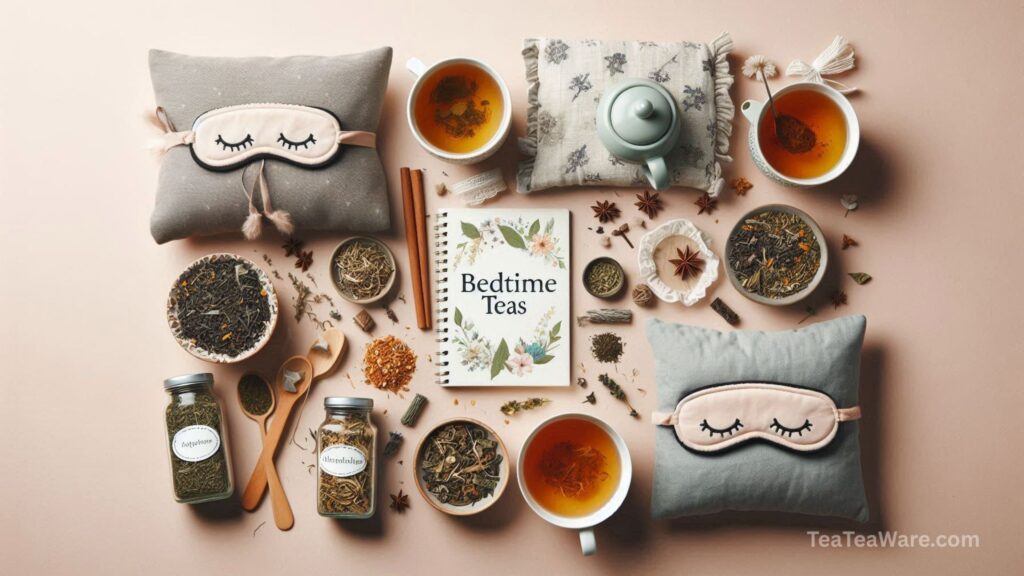
Pros:
- Supports relaxation and signals bedtime to your brain
- Offers comforting warmth and aroma
- Natural, gentle option for mild sleep difficulties
Cons:
- May not suffice for severe insomnia or chronic sleep disorders
- Drinking too close to bedtime may cause nighttime bathroom trips
- Effects can vary; research is ongoing
Our Pick: HIWARE 1000ml Glass Teapot – ideal for brewing loose-leaf teas with an easy-to-use infuser.
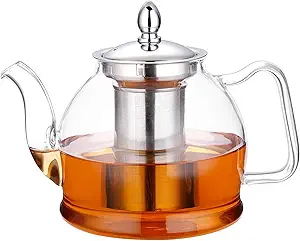
HIWARE 1000ml Glass Teapot
A beautiful and functional way to brew loose-leaf sleep teas. The built-in infuser is perfect for steeping calming herbs with no mess.
Also Read: Is This Glass Teapot Durable Enough for Daily Use?
Who Should Try Bedtime Tea?
Bedtime teas are ideal for:
- People looking to unwind after a stressful day
- Individuals with mild sleep troubles or difficulty relaxing
- Anyone wanting to establish a calming nightly ritual
Caution: Pregnant or breastfeeding individuals, those with medical conditions, or people on medication should consult a doctor before using certain herbs.
Tips for Maximizing Sleep Benefits
- Establish a routine: Drink your tea at the same time each night.
- Create ambiance: Dim lights, play soft music, or practice mindfulness while sipping.
- Limit distractions: Avoid screens to help your body associate tea with sleep.
- Stay hydrated mindfully: Don’t overdo liquids close to bedtime to prevent waking up.
Conclusion
Herbal teas are a simple, natural way to enhance relaxation and support better sleep. Whether you choose chamomile for its gentle aroma, lavender for its floral notes, or valerian root for stronger calming effects, incorporating bedtime tea into your nightly routine can be a cozy ritual that signals your body it’s time to rest.
Call to Action: Try one of these six herbal teas tonight and create a soothing bedtime ritual. Your body—and mind—will thank you.
FAQs About Herbal Sleep Teas
Q1. Can herbal tea cure insomnia?
No, herbal tea can support relaxation but is not a cure for chronic insomnia.
Q2. Which tea is best for anxiety and sleep?
Chamomile, lavender, passionflower, and valerian root are all known for their calming effects.
Q3. Can I drink bedtime tea during pregnancy?
Some herbs may not be safe—always consult your doctor.
Q4. How long before bed should I drink it?
30–60 minutes is ideal to allow the body to relax.
Q5. Can children drink these teas?
Mild teas like chamomile are generally safe in small amounts, but consult a pediatrician first.
